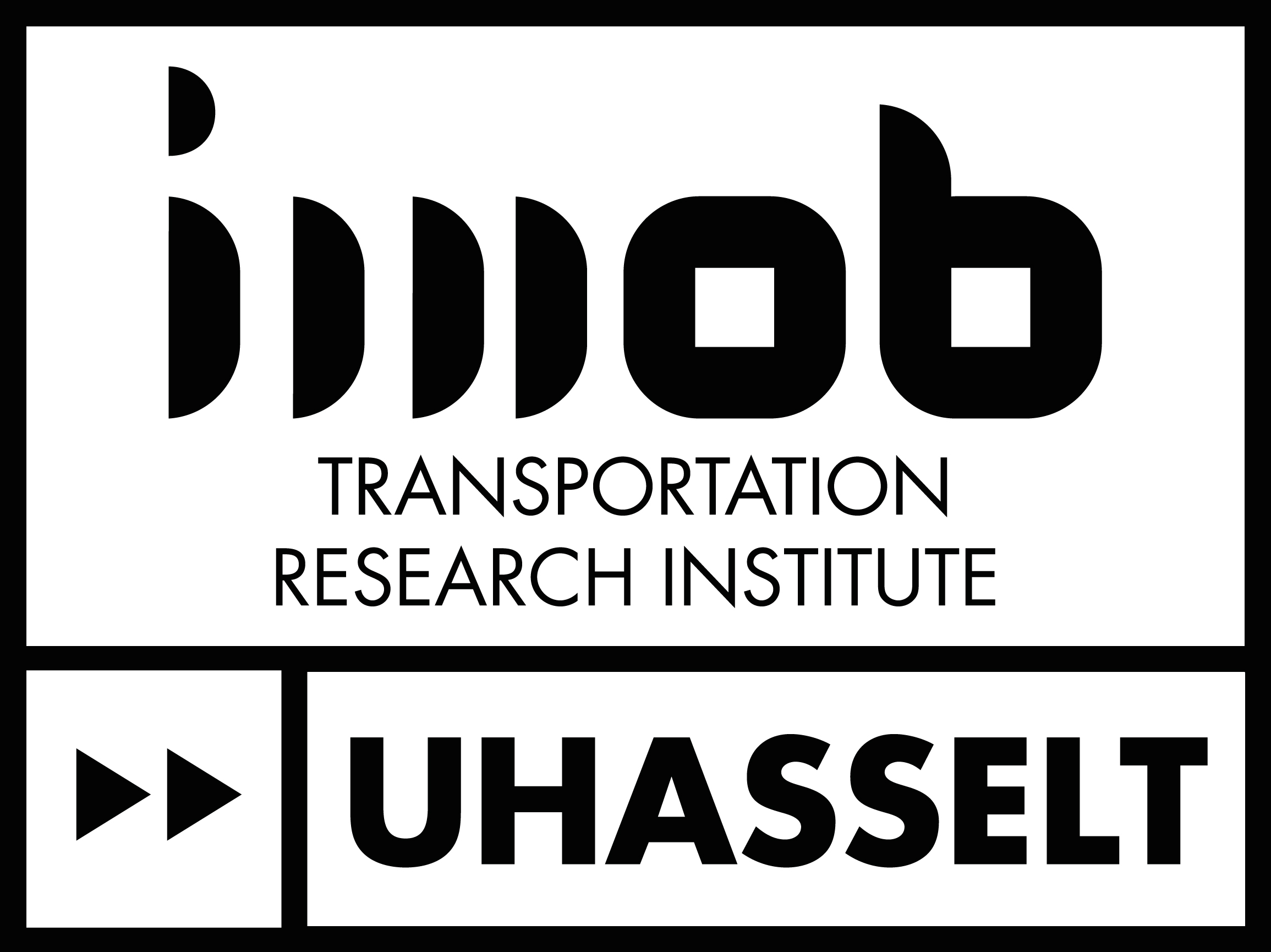PhD on the Development and Calibration of Safety Performance Functions for Urban Roads in Flanders, Belgium
In his PhD, Muhammad Wisal Khattak focused on developing safety performance functions (SPFs), also known as crash prediction models, for urban roads in Flanders. SPFs are statistical models that predict the crash frequency of a given location. To do so, they quantify the relationship between observed crashes and predictor variables related to traffic, the geometric design features of the road, and the environment for a specific time period.


SPFs serve as essential tools for identifying high-risk locations, evaluating applied measures (e.g., before-after evaluation of red-light camera at intersection), and comparing alternative countermeasures (e.g., traffic lights vs. roundabouts). This facilitates evidence-based policymaking and urban planning.
Urban roads are prone to a high number of crashes due to numerous factors acting simultaneously, such as high traffic volumes, heterogeneous traffic and road users, intensive land use, overstressed infrastructure, etc. Besides that, the literature on crash prediction in urban areas is inconsistent and sometimes contradictory. Therefore, this study tries to provide fresh insights into understanding the urban crash phenomenon by estimating SPFs for different crash severity levels and types across various road elements, including intersections and road segments, using advanced statistical models.
Much work went into comprehensive data preparation, utilizing crash data, traffic flows, and road geometric design attributes from the cities of Antwerp and Ghent. The study applied several (advanced) statistical techniques to estimate SPFs and evaluated their performance for fit, prediction, and hotspot identification. Furthermore, the study proposed the application of Bayesian models to address the limited data availability issues in developing SPFs.
In his PhD, Wisal identified significant predictors of crash frequency (from the available variables) on urban roads, such as traffic volume and road geometric design features (including lane width, number of lanes, on-street parking, etc.). Furthermore, he demonstrated that advanced models enhance the accuracy of crash prediction and hotspot identification. The research aligns with the Safe System Approach and Vision Zero principles, contributing valuable insights towards safer urban road design and effective safety interventions.
Want to know more about the PhD research of Muhammad Wisal Khattak?
On Tuesday, October 1, 2024, at 1:00 p.m. Mr. Muhammad Wisal Khattak will defend his PhD thesis at Ghent University. His defence is open to the public and will take place in Auditorium M, first floor at the Jozef Plateaustraat 22, 9000 Gent. It is also possible to attend his defence online.

Who is Muhammad Wisal Khattak?
Mr. Muhammad Wisal Khattak is 33 years old and lives in Hasselt, Belgium. He is passionate about sleeping (napping) and current affairs, enjoys doing statistics and regularly listens to podcasts on science and politics.
Muhammad Wisal Khattak was born in Nowshera, Pakistan, on February 22, 1991. He graduated in Civil Engineering from UET Peshawar. After working as a research assistant at COMSATS University, Islamabad, he got a funded opportunity to study in Belgium, where he completed a Master in Transportation Sciences with distinction from Hasselt University in 2017.
In the same year, Wisal began his PhD at Ghent University, later becoming a joint PhD with Hasselt University. His research interest in road safety began during his master and further developed through an Erasmus exchange stay in Turin, Italy. He has presented at several international conferences and has published in peer-reviewed journals.
Wisal has been involved in several projects at the Transportation Research Institute (IMOB, Hasselt University), such as the EU's Horizon 2020 'i-DREAMS’, ‘MILESTONE’, and an FWO project on advanced driver assistance systems acceptance in Belgium and Vietnam. His research interests include traffic safety data analysis, crash data modelling, roadway design, and human factors. He also contributes to the Transportation Sciences program at Hasselt University.
